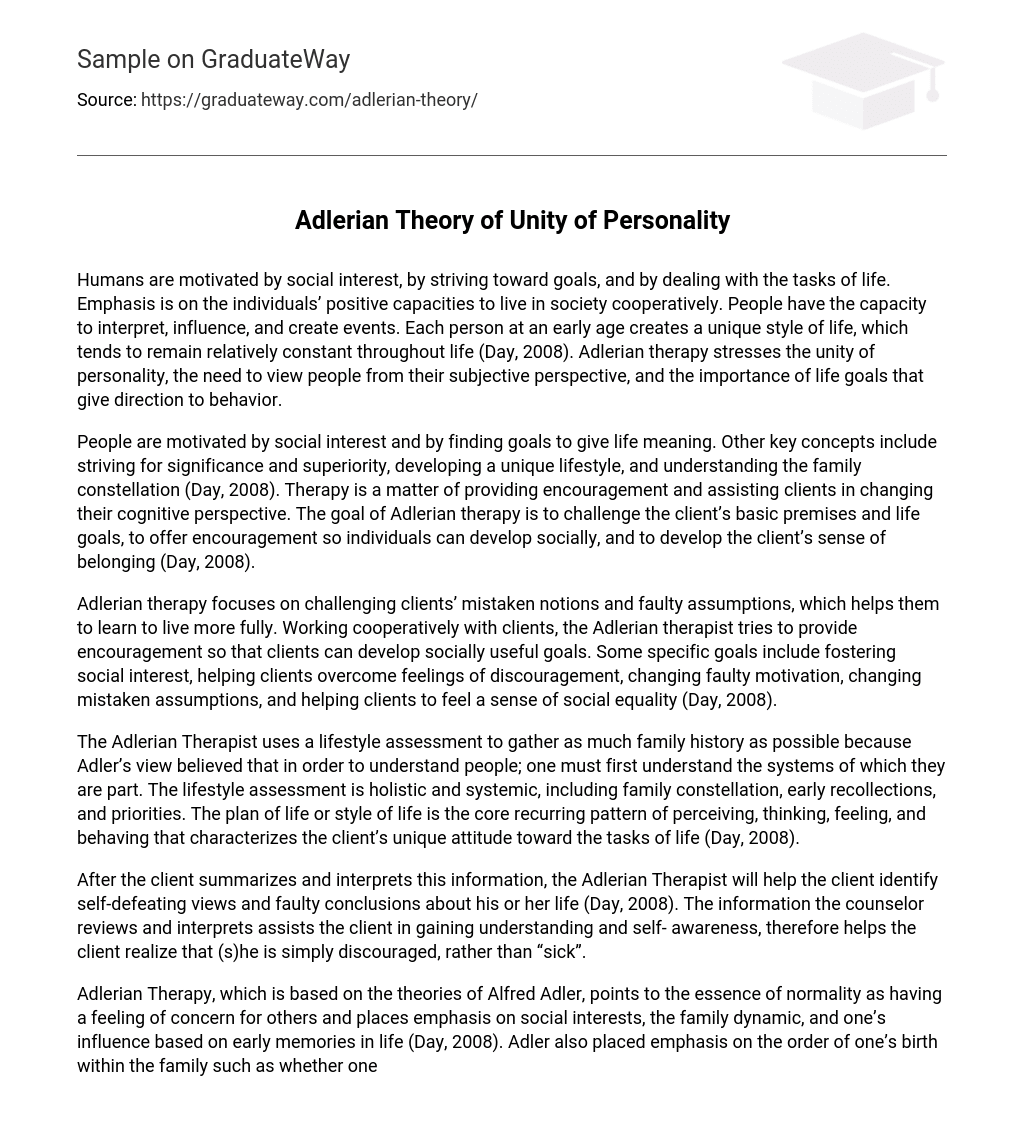Humans are driven by social interest, the pursuit of goals, and the management of life tasks, with a focus on their ability to live cooperatively in society. Individuals possess the power to interpret, impact, and generate events. From an early age, each person develops a distinct style of life that typically remains consistent over time (Day, 2008). Adlerian therapy emphasizes the integration of personality, the necessity of understanding people from their own viewpoint, and the significance of life goals in guiding behavior.
People are driven by social interest and the search for purpose in life, as well as the pursuit of significance and superiority, the creation of a distinct lifestyle, and comprehension of the family constellation (Day, 2008). In therapy, the emphasis is on offering support and aiding clients in altering their cognitive viewpoint. The objective of Adlerian therapy is to challenge clients’ fundamental beliefs and life objectives, while empowering them to grow socially and foster a sense of belonging (Day, 2008).
Adlerian therapy aims to help clients live fuller lives by challenging their mistaken notions and faulty assumptions. Through cooperative efforts, the therapist provides encouragement to help clients develop socially useful goals. Specific goals of this therapy include fostering social interest, overcoming feelings of discouragement, changing faulty motivation and assumptions, and promoting a sense of social equality among clients (Day, 2008).
Adlerian Therapists employ a lifestyle assessment to acquire extensive family history, as Adler believed that understanding individuals requires understanding the systems they are involved in. The lifestyle assessment is comprehensive and systemic, encompassing family constellation, early recollections, and priorities. The plan of life or style of life is the fundamental recurring pattern of perception, thought, emotion, and behavior that defines the client’s distinct approach to life’s tasks (Day, 2008).
After summarizing and interpreting the information, the Adlerian Therapist will assist the client in identifying self-defeating views and faulty conclusions about their life (Day, 2008). The counselor’s review and interpretation of the information help the client gain understanding and self-awareness, ultimately recognizing that they are simply discouraged rather than being “sick”.
Adlerian Therapy, rooted in the theories of Alfred Adler, focuses on the importance of normality, characterized by empathy towards others. It highlights social interests, the dynamics within the family, and the impact of early memories (Day, 2008). Adler also emphasizes the significance of birth order among siblings, whether one is the eldest, middle child, youngest, or an only child. His approach revolves around subjects like lifestyle, beliefs and fictions, psychological environment, and individual approach.





